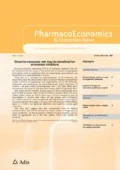Approaches to manage the pricing of novel COVID-19 vaccines and treatments, while attempting to achieve affordable access, need to be actively debated by the public and policy makers, suggest researchers from the Institute for Clinical and Economic Review in the US.
The researchers present six policy options to pricing novel COVID-19 vaccines and treatments, with different approaches taken toward the role of government and the private market.
Unrestricted pricing (status quo) would run a high risk that the costs of novel COVID-19 vaccines and treatments may create a crisis of affordability, with government and private payers restricting access. A cost-recovery approach, where a ceiling price is set by government and/or private insurers, would maximise affordability and produce relative low cost but might dampen incentives for later research. With value-based pricing, a ceiling price is set based on cost-effectiveness analysis, but affordability would need to be addressed, possibly by using a lower cost-effectiveness threshold. The approach that uses monetary prizes awarded by government to a company for successful development of a vaccine or treatment would help to ensure global access but the size of the prize amount remains unclear. Compulsory licensing, where royalties are paid to the innovator and government permits others to make, use and sell patented pharmaceuticals without the patent holder's permission, would be the quickest way for producing massive amounts of a vaccine or treatment at the lowest possible cost but this approach may have a negative effect on future investments for COVID-19 treatments. Advanced market commitments and subscription models are also discussed.
Reference
Institute for Clinical and Economic Review. ICER Publishes White Paper on Alternative Policies for Drug and Vaccine Pricing During a Pandemic, Announces Cross-Stakeholder Discussion Series. Internet Document : 1 Jul 2020. Available from: URL: https://icer-review.org/announcements/icer-publishes-white-paper-on-alternative-policies-for-drug-and-vaccine-pricing-during-a-pandemic-announces-cross-stakeholder-discussion-series/
Rights and permissions
About this article
Cite this article
Policy options discussed for pricing novel COVID-19 vaccines/treatment. PharmacoEcon Outcomes News 857, 36 (2020). https://doi.org/10.1007/s40274-020-6973-4
Published:
Issue Date:
DOI: https://doi.org/10.1007/s40274-020-6973-4

